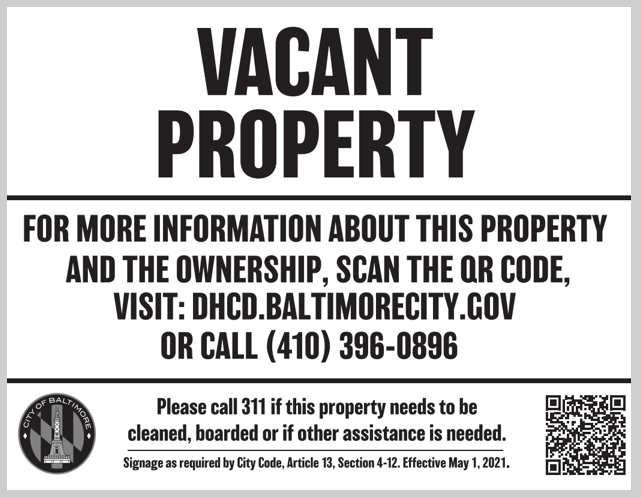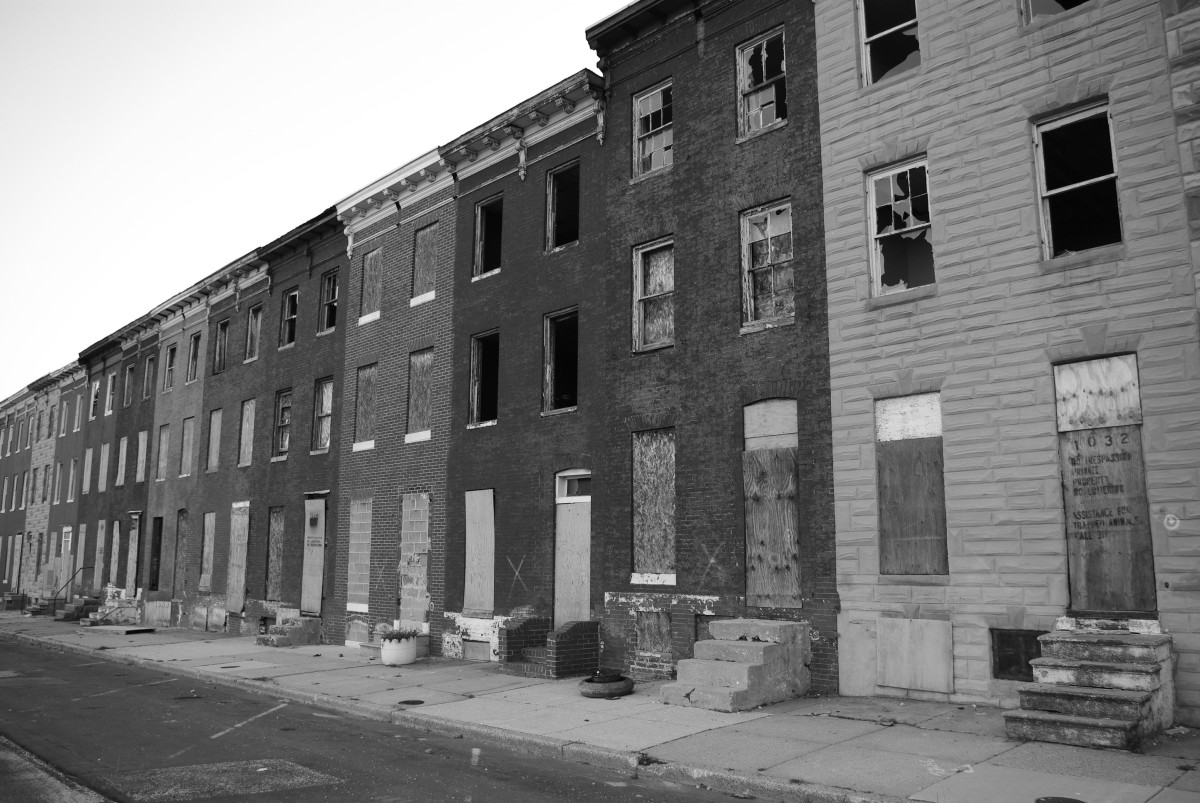Baltimore City has 15,600 vacant properties. And unlike the other big cities of the East Coast, the city lost population through the last decade.
With these properties continuing to be visible, the city recently began requiring signage to be posted on the vacants that features a QR code.
Scanned QR codes direct users to DHCD’s Vacant Property Resources and Information Page. Along with development plans, active notices, and permits searches, the public can access the city’s portal for information about a vacant building that includes the owner or responsible agent’s name, address, phone number and email contact if available. There’s also a phone number to call for the info: 410-396-0896.
The measure was created by a City Council bill that passed last fall, the Baltimore Business Journal reported. Now it is being implemented by the Baltimore City Department of Housing & Community Development.
“This will go a long way in helping our communities to fight and eliminate blight,” said Baltimore City Councilmember Kristerfer Burnett, who sponsored the legislation, in a statement. “It brings about greater transparency and accountability of those property owners who contribute to the deteriorating conditions of properties across Baltimore. This is an exciting step forward.”
Here’s what the signs look like:

It’s similar to a 2013 initiative by Wall Hunters that used murals with QR codes to highlight blighted properties. In that initiative, QR codes directed people to the Slumlord Watch blog created by housing activist Carol Ott.
The rollout of the new program from the city comes at a time when QR codes are enjoying something of a resurgence in the pandemic. As it goes forward, we’ll be watching the following: Will people use these QR codes to look up info on vacant houses? And ultimately, is it accessibility to ownership info that prevents the sale of these vacant homes?







